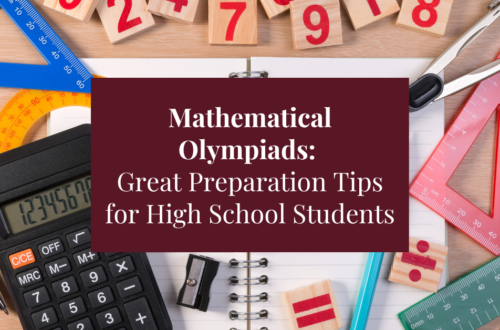As a high school math and computer science teacher with over 11 years of experience, I’ve seen firsthand the various ways students attempt to sidestep academic honesty. Cheating can feel like a personal attack on the integrity of the classroom, but I’ve learned over the years that prevention is far more effective than punishment. In this post, I’ll share strategies that have worked for me to foster an honest environment in my math classroom. These tips come from years of trial, error, and reflection.
1. Set Clear Expectations from Day One
Students need to understand what constitutes cheating and why it undermines their education. At the start of each school year, I take time to define academic integrity in simple, relatable terms. I provide examples specific to math—copying homework answers, sharing test questions, or using unauthorized aids—and explain the consequences of dishonesty. Making these expectations clear sets the tone for the rest of the year.
2. Design Assessments Thoughtfully
One of the most effective ways to deter cheating is by designing assessments that make it difficult to cheat. Here are a few strategies:
- Randomized Questions: In computer-based assessments, I use tools that randomize numbers in problems, ensuring each student has a unique version of the test.
- Varied Question Types: Instead of all multiple-choice questions, I incorporate open-ended problems that require students to explain their reasoning. I also ask questions that encourage students to explain how they got their answer or why it’s correct, which not only strengthens their understanding but also discourages cheating.
- Frequent Quizzes: Smaller, more frequent quizzes reduce the temptation for students to rely on peers or notes.
- Similar Makeup Tests: For students who need to retake an assessment, I provide a similar test with the same types of problems but different numbers. This ensures fairness while maintaining the integrity of the process.
3. Leverage Technology Wisely
In my computer science classes, I’ve found that technology can be both a blessing and a curse. For math, tools like Desmos or Geogebra are great for enhancing learning, but they can also be used inappropriately. To mitigate this, I emphasize teaching students how to use these tools ethically. I also monitor online assessments with platforms that track student activity.
4. Create a Culture of Trust and Growth
One of the biggest lessons I’ve learned is that students are less likely to cheat when they feel respected and supported. I remind them often that learning—not perfection—is the goal. Mistakes are part of the process, and assessments are opportunities to grow, not just earn a grade. Building strong relationships and showing genuine interest in their progress has significantly reduced cheating in my classroom.
Jesus’ teachings emphasize the importance of honesty. In Matthew 5:37, He says, “Let your ‘Yes’ be ‘Yes,’ and your ‘No,’ ‘No.’” This simple but profound command reminds us that truthfulness is foundational to our relationships, both in and outside the classroom. When students feel valued and understood, they are more likely to approach learning with integrity.
5. Supervise Effectively During Tests
While this might seem obvious, test supervision plays a critical role. I’ve adopted some strategies over the years that help:
- Clear Seating Arrangements: I assign seats during tests to prevent collaboration.
- Proactive Movement: I walk around the room frequently. Just being present and observant discourages wandering eyes.
- Limited Materials: I ask students to clear their desks of anything not allowed during the test. I also make sure calculators, if permitted, are cleared of stored data beforehand.
6. Use Reflection as a Learning Tool
One strategy I’ve implemented with great success is having students reflect on their own learning after a test. I ask them to write about what they found challenging, how they prepared, and what they would do differently next time. This not only helps them improve but also reinforces the importance of honesty—after all, cheating robs them of meaningful growth.
7. Discuss Real-World Consequences
Cheating isn’t just a classroom issue; it’s a life issue. I occasionally share stories about the consequences of dishonesty in professional settings, making the case that integrity matters far beyond high school. Students need to understand that math class is not just about numbers; it’s about building character and problem-solving skills they’ll use for life. In college, the first consequence of cheating is that you will fail the course. The second consequence is that you may be expelled from the university. These are serious repercussions that can impact their future careers and academic opportunities.
My Personal Takeaway
Over my 11+ years of teaching, I’ve come to realize that preventing cheating is less about catching students in the act and more about creating an environment where they don’t feel the need to cheat in the first place. These strategies have not only helped me reduce dishonesty but also deepened my relationships with my students. When they see that you’re invested in their learning and growth, they’re more likely to rise to the occasion with honesty and integrity.
I hope these tips help you as much as they’ve helped me. If you have other strategies that have worked in your classroom, I’d love to hear them! Let’s work together to create spaces where learning thrives and integrity is the norm.






